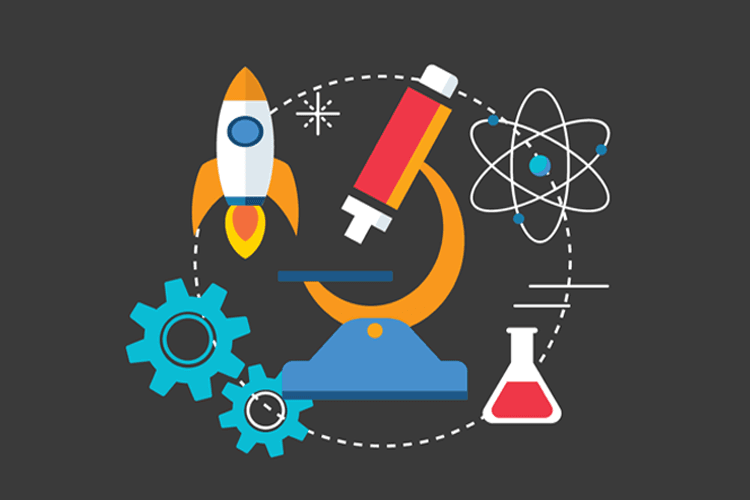
Taken from: https://www.training.com.au/ed/stem-careers-science-be-a-part-of-the-future/
INTRODUCTION
Science relies on logical reasoning and the methodological apparatus of the formal sciences in order to understand the phenomena that make up the natural world. In the science course, the student will be provided with the resources, techniques and knowledge that allow them to understand and enter the world of biology, physics and chemistry, thus strengthening their learning process. Additionally, the course will be taught in the English language, in order to improve the student's skills in the second language and to open the borders to a global context.
GENERAL OBJECTIVE
Making use of the second period’s contents, the objectives for the students are to: • Understand and value science and its implications • Consider science as a human activity that has benefits and limitations • Form an analytical, inquiring and flexible mindset to ask questions, solve problems, and elaborate explanations and judge arguments • Develop skills to design and conduct investigations, evaluate evidence, and reach conclusions. • Become aware of the need to collaborate and communicate effectively • Apply their knowledge and language skills in a variety of real-life situations • Develop sensitivity towards living and inert elements of the environment • Reflect on learning experiences and make informed decisions
METHODOLOGY
● Student guided inquiry. ● Master class. ● Workshops. ● Laboratory practices. ● Unit guided projects. ● Discussions. ● Consolidation of ideas from audiovisual material.
CONTENT AND CONCEPTS
Unit 1: Ecology.
· Species, populations, communities and ecosystems.
· Carnivores, herbivores, decomposers.
· Food networks and interactions between organisms (niches, predation, symbiosis, parasitism, pathogens, succession).
· Flows of matter and energy.
Unit 2: Biogeochemical cycles.
· Carbon cycle.
· Water cycle.
· Nitrogen cycle.
· Global Change: effects of humans on ecosystems. Includes: greenhouse effect, climate change, deforestation-desertification, mining, overpopulation-carrying capacity, pollution, loss of biodiversity-invasive species.
Unit 3: Chemistry.
· Types of bonds and their models.
· Lewis structure.
· Electronic configuration.
· Calculations of atomic and molecular masses.
Unit 4: Physics.
· Units of measurement: distance, time, speed and acceleration.
· Draw graphs of distance, time and speed.
Evaluation Criteria Percentages
Criteria A: Knowledge and understanding 25%
Criteria B: Inquiry and design 25%
Criteria C: Processing and evaluation 25%
Criteria D: Reflection on the impact of science 25%

- Teacher: Pauline Perry Arbelaez
- Teacher: Emmanuel Ramirez Cardenas
- Teacher: Jhonnyer Julian Valencia Arredondo